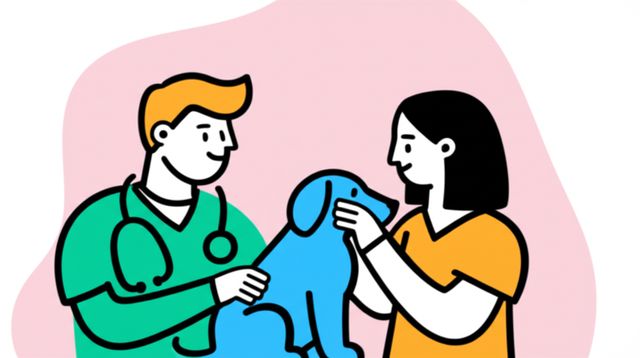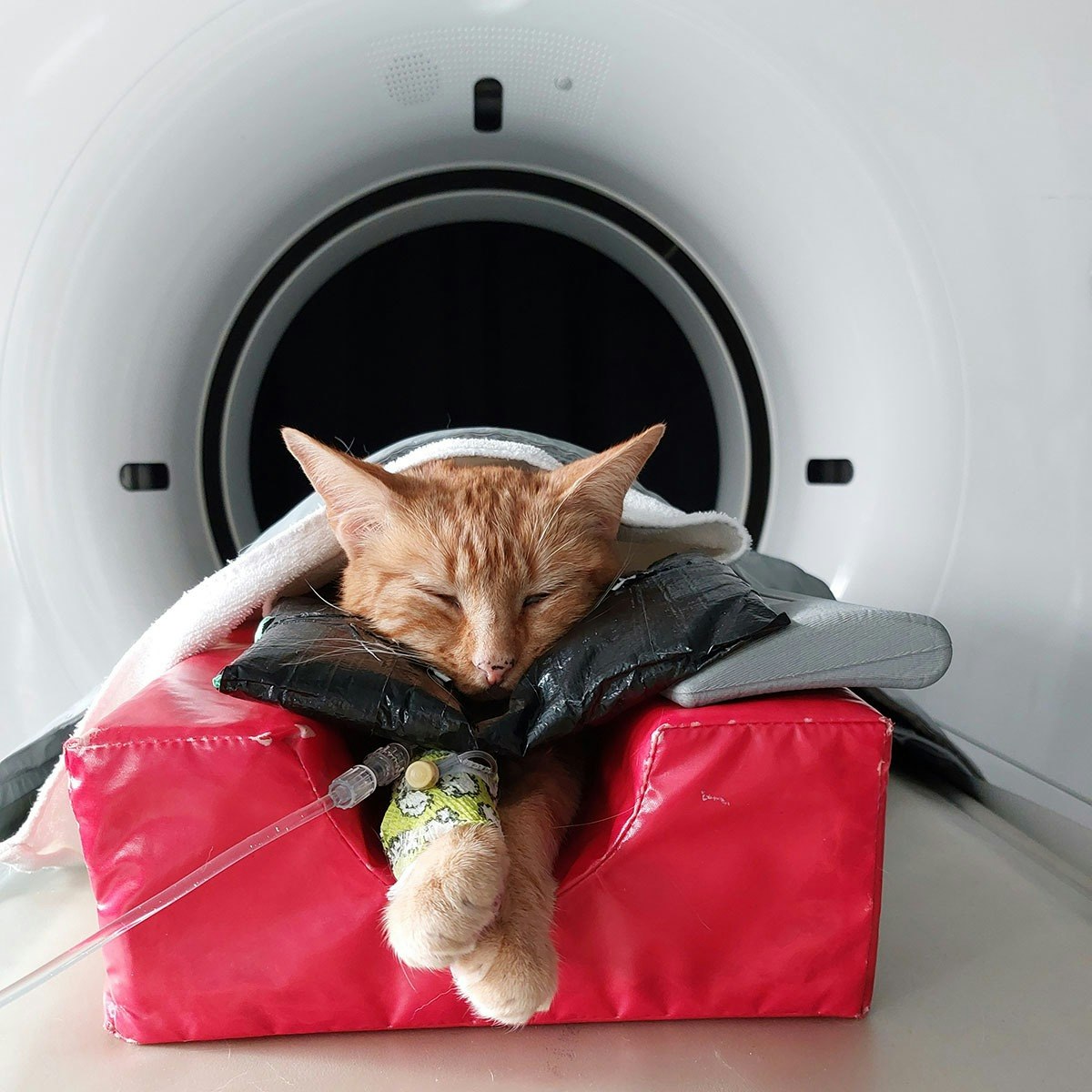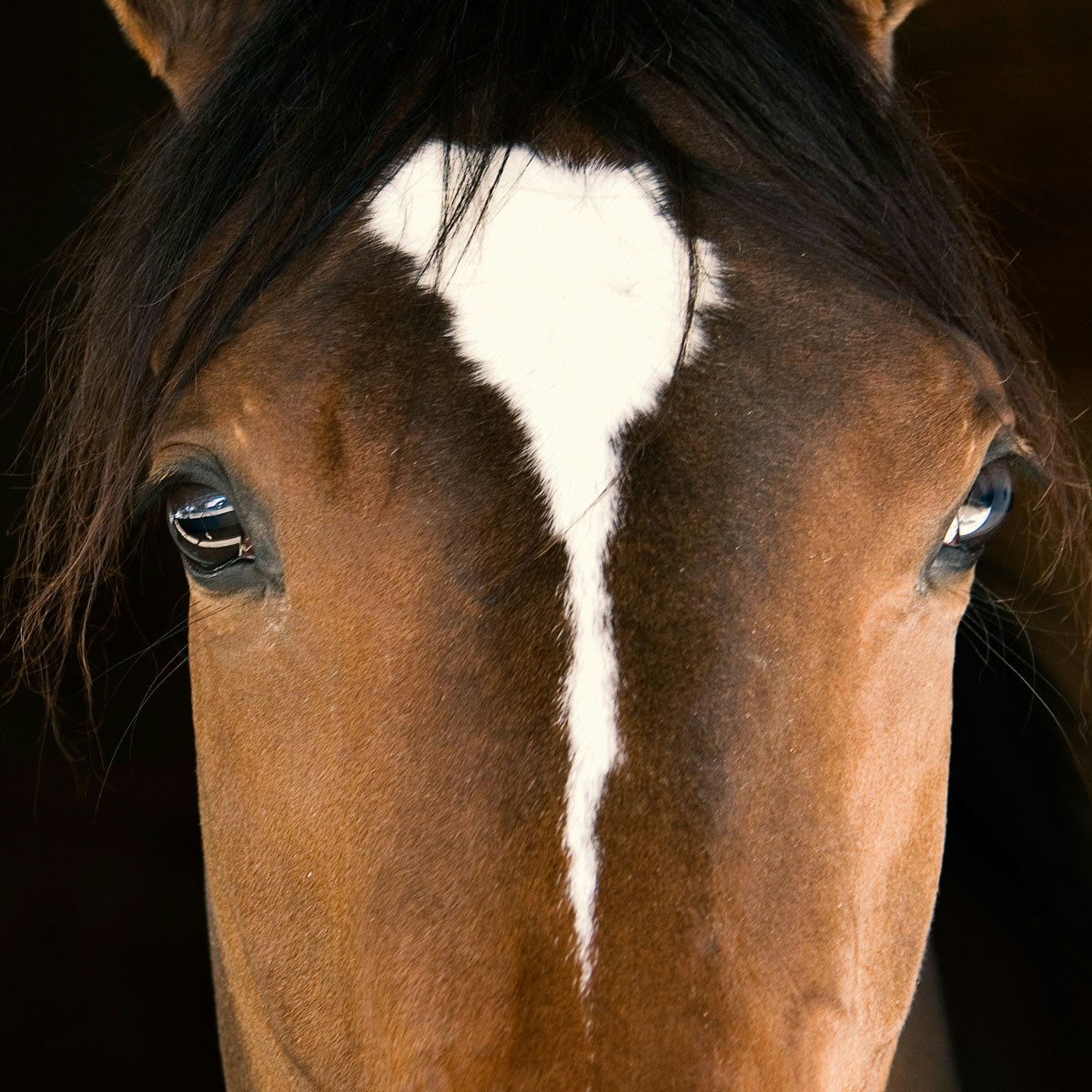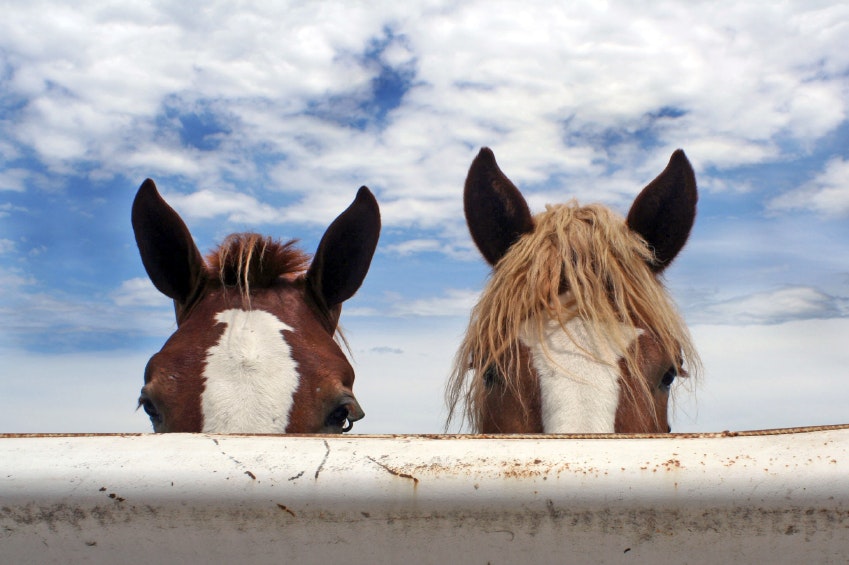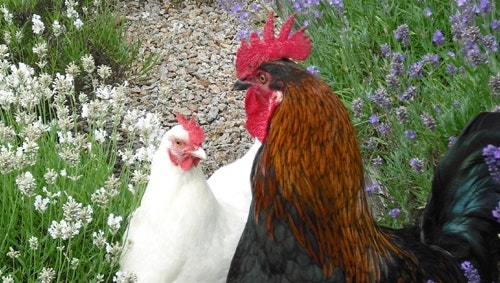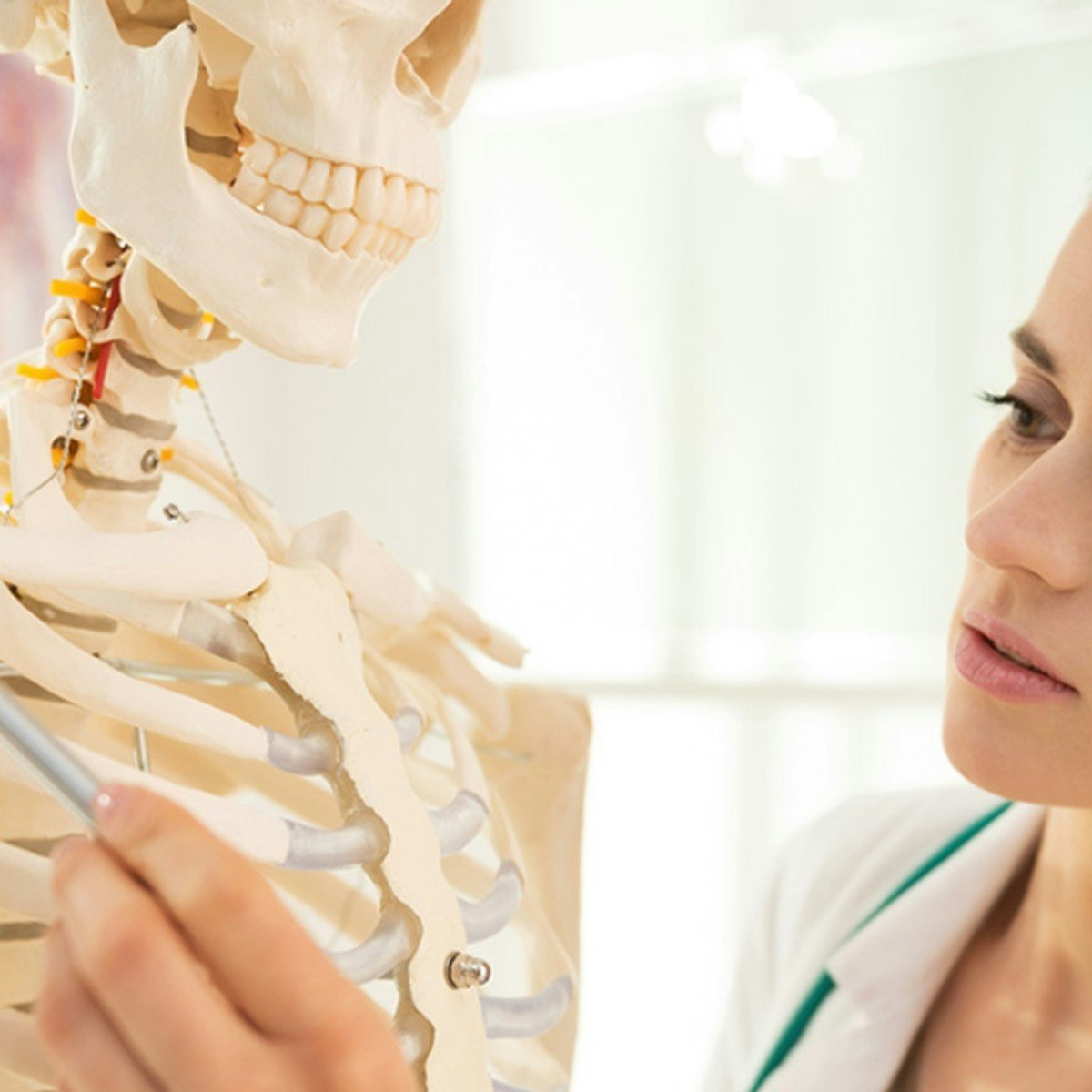Veterinary Technician
Exploring a Career as a Veterinary Technician
A Veterinary Technician, often called a vet tech, is a vital member of the veterinary healthcare team. Working under the supervision of a licensed veterinarian, they provide crucial support in nearly all aspects of animal care. Think of them as the skilled nurses of the animal world, combining technical expertise with compassion to ensure pets and other animals receive the best possible treatment.
The role is dynamic and hands-on, involving direct patient care, laboratory procedures, surgical assistance, and client communication. For those passionate about animal welfare and seeking a career in medicine, becoming a vet tech offers a rewarding path. It allows you to make a tangible difference in the lives of animals and their owners daily, engaging both your scientific knowledge and your capacity for empathy.
What Does a Veterinary Technician Do?
Understanding the scope and responsibilities of a Veterinary Technician is the first step in exploring this career. These professionals are far more than just assistants; they are educated and credentialed individuals integral to veterinary practice.
Definition and Primary Role in Veterinary Care
A Veterinary Technician is a graduate of an accredited veterinary technology program, typically holding an associate's or bachelor's degree. Their primary role is to act as the veterinarian's key medical support person, enhancing efficiency by handling technical tasks and providing comprehensive nursing care. They work collaboratively with veterinarians to manage patient care from examination through treatment.
Vet techs are educated in animal handling, physiology, pharmacology, and clinical procedures. Their training equips them to understand both normal and abnormal life processes in animals, allowing them to effectively monitor patients, recognize signs of illness, and assist in diagnostics and treatment under veterinary guidance.
The profession is regulated in most states, requiring technicians to pass a credentialing exam, like the Veterinary Technician National Examination (VTNE), and often maintain licensure or registration through continuing education. This ensures a high standard of practice and acknowledges their advanced skills and knowledge base.
Key Responsibilities in Clinical and Non-Clinical Settings
In a clinical setting, such as a private veterinary practice, a vet tech's duties are extensive. They often begin the patient visit by obtaining a medical history and recording vital signs. They collect samples (blood, urine, tissue) for laboratory testing, often performing tests like urinalysis and blood counts in-house.
Vet techs administer medications, vaccines, and treatments as prescribed by the veterinarian. They are skilled in providing nursing care, including wound management, fluid administration, and monitoring recovering patients. Assisting in surgery is another key responsibility, involving preparing the patient and instruments, administering and monitoring anesthesia, and providing post-operative care.
Beyond direct patient care, vet techs often manage inventory, maintain medical records using EHR systems, and educate clients on animal care, nutrition, and treatment plans. In non-clinical settings like research labs, their duties might involve supervising animal care, assisting with research protocols, and ensuring humane treatment under scientific guidelines.
These courses offer foundational knowledge relevant to the diverse tasks performed by veterinary technicians, from understanding animal health principles to specific care techniques.
These books delve deeper into the scientific basis of veterinary medicine and animal care, which are core knowledge areas for technicians.
Typical Work Environments
The majority of veterinary technicians work in private veterinary clinics, primarily caring for companion animals like dogs and cats. However, opportunities extend far beyond traditional small animal practice. Vet techs can specialize in large animal or equine medicine, working on farms or ranches.
Other common work environments include animal hospitals, emergency and specialty clinics, animal shelters, and humane societies. Zoos and aquariums also employ vet techs to care for exotic species, although these positions can be highly competitive. Research facilities, both academic and private, rely on technicians for laboratory animal care and research support.
Furthermore, vet techs can find roles in government agencies (e.g., food safety inspection, military service), veterinary supply companies, pharmaceutical sales, and education, teaching future generations of technicians. This variety allows individuals to find a niche that aligns with their interests and career goals.
Comparison to Veterinarians and Veterinary Assistants
It's important to distinguish veterinary technicians from veterinarians and veterinary assistants. Veterinarians hold a Doctor of Veterinary Medicine (DVM) degree, requiring extensive post-graduate education. They are responsible for diagnosing diseases, prescribing medications, performing surgery, and making ultimate decisions about patient care.
Veterinary assistants, on the other hand, typically require a high school diploma and receive on-the-job training or complete shorter certificate programs. Their duties usually involve basic animal husbandry (feeding, bathing, exercising animals), kennel work, cleaning, restraining animals, and administrative tasks. While some duties may overlap, assistants do not have the same level of medical training or credentialing as technicians and cannot perform many clinical tasks independently.
Veterinary technicians occupy a crucial middle ground. They possess significantly more formal education and clinical training than assistants, allowing them to perform complex medical tasks under veterinary supervision. However, they do not diagnose, prescribe, or perform surgery independently, which are the responsibilities of the veterinarian. Their role is analogous to that of a registered nurse in human medicine, providing skilled technical and nursing support.
Educational Pathways to Becoming a Veterinary Technician
Pursuing a career as a veterinary technician requires specific educational qualifications and adherence to regulatory standards. Understanding this pathway is essential for anyone considering entering the field, whether you are a high school student, university student, or career changer.
Required Academic Qualifications
The standard entry point into the veterinary technician profession is completing an associate degree program in veterinary technology. These programs typically take two to three years to complete and are offered by community colleges, technical schools, and some universities. Coursework covers a broad range of subjects essential for the role.
Curricula usually include foundational sciences like animal anatomy and physiology, chemistry, and microbiology. Specialized courses focus on veterinary pharmacology, parasitology, animal nursing techniques, diagnostic imaging (radiology), anesthesia, surgical assistance, clinical procedures, and animal nutrition. These programs combine classroom learning with laboratory sessions to build practical skills.
Some institutions offer four-year bachelor's degree programs in veterinary technology. Graduates of these programs are often referred to as veterinary technologists and may qualify for advanced roles, research positions, or higher salaries due to their more extensive education. A high school diploma or GED is a prerequisite for entering any veterinary technology program.
These courses cover core biological and medical concepts relevant to veterinary technology studies.
This book provides a comprehensive overview of veterinary anatomy, a fundamental subject in vet tech education.
Accreditation Standards and Regional Licensing Requirements
Accreditation is a critical factor when choosing a veterinary technology program. In the United States and Canada, programs accredited by the American Veterinary Medical Association Committee on Veterinary Technician Education and Activities (AVMA-CVTEA) meet rigorous standards for curriculum, faculty, facilities, and clinical training. Graduating from an AVMA-accredited program is typically required for credentialing.
Licensing or registration requirements vary by state or province. Most jurisdictions mandate that veterinary technicians pass a credentialing examination to practice legally. This credential ensures that technicians meet established competency standards and can safely perform their duties. Requirements may include licensure, registration, or certification, with specific terminology differing by region.
Continuing education is also often required to maintain credentials. Technicians typically need to complete a set number of hours of approved training periodically (e.g., annually or biennially) to stay current with advancements in veterinary medicine and renew their license or registration. Prospective students should research the specific requirements in the state or region where they intend to work.
Clinical Training Components
Hands-on clinical experience is a vital component of veterinary technology education. All AVMA-accredited programs include mandatory clinical training, often through internships, externships, or practicums. These experiences allow students to apply classroom knowledge in real-world veterinary settings under the supervision of licensed veterinarians and experienced technicians.
During clinical rotations, students gain practical skills in areas such as patient assessment, sample collection, laboratory procedures, administering treatments, anesthesia monitoring, surgical assistance, and client communication. This exposure is crucial for developing the confidence and competence needed to function effectively as a vet tech upon graduation.
The duration and structure of clinical training vary by program, but it represents a significant portion of the curriculum. These practical components bridge the gap between theoretical knowledge and the demands of daily practice, ensuring graduates are prepared for the workforce.
Certification Exams
The most widely recognized credentialing examination for veterinary technicians in North America is the Veterinary Technician National Examination (VTNE), administered by the American Association of Veterinary State Boards (AAVSB). Passing the VTNE is a requirement for licensure or registration in most U.S. states and Canadian provinces.
The VTNE is a comprehensive, computer-based exam covering nine key domains of veterinary technology, including pharmacy and pharmacology, surgical nursing, dentistry, laboratory procedures, animal care and nursing, diagnostic imaging, anesthesia, emergency medicine/critical care, and pain management/analgesia. Eligibility typically requires graduation from an AVMA-accredited program.
Pass rates for the VTNE can vary by program and testing window. Prospective students may want to inquire about a program's historical pass rates as one indicator of its effectiveness in preparing graduates for this crucial exam. Some states may have additional state-specific exams or requirements beyond the VTNE.
Online Education and Skill Development
The landscape of education is evolving, and veterinary technology is no exception. Online and hybrid learning models offer flexibility, but it's important to understand their role, possibilities, and limitations in preparing for this hands-on profession.
Feasibility of Hybrid Learning Models
Fully online programs for veterinary technology are challenging due to the profession's hands-on nature. However, hybrid models, combining online coursework with in-person laboratory sessions and clinical training, are increasingly common. The AVMA accredits several distance learning programs that meet the same standards as traditional ones.
These programs allow students to complete theoretical coursework online at their own pace, which can be beneficial for those balancing education with work or family commitments. The crucial hands-on components, including laboratory skills and clinical experience, must still be completed in person, often through partnerships with local veterinary practices or approved facilities.
While convenient, prospective students should carefully evaluate whether a distance learning format suits their learning style and ensure they have access to appropriate facilities and supervision for the required practical training components. Success in these programs requires discipline and proactive engagement.
Supplemental Courses
Online platforms like OpenCourser offer a wealth of supplemental courses that can enhance a veterinary technician's knowledge base, both during formal education and throughout their career. These courses can cover specialized topics not extensively detailed in standard curricula or provide deeper dives into specific areas of interest.
Examples include courses on advanced animal pharmacology, specific diagnostic techniques like ultrasound, exotic animal care, animal behavior modification, or practice management. Professionals can use these courses for continuing education credits required for license renewal or simply to broaden their expertise and stay current with new developments.
Students can use online courses to reinforce concepts learned in their degree program or explore areas they find particularly engaging. OpenCourser's extensive catalog makes it easy to find relevant courses across various Health & Medicine topics, helping learners build a well-rounded skill set.
These courses cover specific areas relevant to veterinary practice, such as pharmacology, equine care, and animal behavior, which can supplement formal education or provide specialized knowledge.
Limitations of Online Education
The primary limitation of purely online education for veterinary technicians is the inability to adequately teach and assess essential hands-on clinical skills. Tasks like administering injections, drawing blood, placing catheters, monitoring anesthesia, performing dental cleanings, and assisting in surgery require direct practice and expert supervision.
While videos and simulations can supplement learning, they cannot replace the tactile experience and real-time feedback gained in a laboratory or clinical setting. Accredited programs, including distance learning options, recognize this and incorporate mandatory in-person clinical components to ensure graduates are competent in these critical skills.
Therefore, while online resources are valuable for theoretical knowledge and supplemental learning, they cannot fully substitute for an accredited program with structured, supervised hands-on training required to become a qualified veterinary technician.
Portfolio-Building Strategies
For individuals pursuing veterinary technology through non-traditional paths or seeking to enhance their credentials, building a portfolio can be beneficial. This involves documenting skills, experiences, and continuing education to showcase competence and dedication to the field.
A portfolio might include certificates from supplemental online courses, records of volunteer hours at shelters or clinics, documentation of specific skills mastered (e.g., proficiency checklists signed by a supervising veterinarian), case studies written up (if applicable and maintaining confidentiality), and evidence of participation in workshops or conferences.
While a strong portfolio can supplement a formal degree and potentially impress employers, it generally cannot replace the requirement of graduating from an AVMA-accredited program and passing the VTNE for official credentialing in most jurisdictions. However, it demonstrates initiative and commitment to professional development.
Role of a Veterinary Technician in Modern Practice
The role of veterinary technicians continues to evolve with advancements in veterinary medicine and technology. Understanding their modern responsibilities, specializations, and ethical duties provides insight into the depth and importance of this profession.
Specializations
Similar to nurses in human medicine, veterinary technicians can pursue specialization in various areas to deepen their expertise and focus their careers. The National Association of Veterinary Technicians in America (NAVTA) recognizes several Veterinary Technician Specialist (VTS) academies.
These specialties cover diverse fields such as Emergency and Critical Care, Anesthesia and Analgesia, Dentistry, Internal Medicine (with sub-specialties like cardiology and oncology), Surgery, Clinical Practice (species-specific, like canine/feline or equine), Nutrition, Behavior, Clinical Pathology, Dermatology, Diagnostic Imaging, and Zoological Medicine. Achieving VTS status requires extensive experience, specific training, case logs, case reports, continuing education, and passing a rigorous examination in the chosen specialty.
Specialization allows vet techs to become highly skilled experts in a particular domain, often leading to increased responsibilities, higher earning potential, and roles in advanced referral practices, research, or academic settings. Information on specific academies and requirements can be found through NAVTA.
These courses touch upon areas where specialization is possible, such as equine care, animal behavior, and anesthesia/emergency response.
These books cover specialized areas like surgery, anesthesia, and specific animal types, reflecting the depth available through specialization.
Integration with Veterinary Technology Advancements
Modern veterinary practice increasingly incorporates advanced technology, and vet techs are crucial in utilizing these tools. They routinely operate diagnostic equipment such as digital radiography (X-ray) machines, ultrasound devices, and complex laboratory analyzers.
Proficiency in veterinary software for electronic health records (EHR), practice management, and digital imaging is essential. Technicians often manage these systems, ensuring accurate record-keeping and efficient workflow. They may also assist with or perform advanced procedures like endoscopy or laser therapy under veterinary supervision.
As technology evolves (e.g., telemedicine, advanced monitoring equipment), vet techs must adapt and acquire new skills. Their ability to integrate these advancements into daily practice enhances the quality of patient care and diagnostic capabilities.
Ethical Responsibilities in Animal Welfare
Veterinary technicians have significant ethical responsibilities concerning animal welfare. They are advocates for their patients, ensuring humane treatment, minimizing stress and pain, and providing compassionate care. This includes proper handling techniques, monitoring for signs of distress, and communicating welfare concerns to the veterinarian.
They play a role in educating clients about responsible pet ownership, preventative care, and the importance of adhering to treatment plans. Ethical dilemmas, such as dealing with animal cruelty cases or discussing euthanasia with owners, are part of the job and require sensitivity, professionalism, and adherence to ethical guidelines established by professional organizations like the AVMA and NAVTA.
Maintaining patient confidentiality, upholding professional standards, and committing to lifelong learning to ensure competent care are also key ethical obligations. Understanding and navigating these responsibilities is fundamental to the profession.
These courses and books explore the critical aspects of animal welfare and ethics in veterinary practice.
Case Study Examples of Daily Workflows
A typical day for a vet tech in a clinical setting is often fast-paced and varied. It might start with preparing the clinic, checking on hospitalized patients, administering morning medications, and setting up for scheduled appointments or surgeries.
Throughout the day, they assist veterinarians with examinations, restrain animals safely, collect and process lab samples, take radiographs, and monitor vital signs. If surgeries are scheduled, the tech prepares the surgical suite, instruments, and patient, induces and monitors anesthesia, assists the surgeon, and oversees post-operative recovery.
Between appointments and procedures, techs communicate with clients, provide discharge instructions, fill prescriptions, maintain records, clean and sterilize equipment, and manage inventory. Emergency situations can arise unexpectedly, requiring quick assessment, first aid, and support during critical care procedures. The ability to multitask, prioritize, and remain calm under pressure is essential.
Career Progression and Opportunities
A career as a veterinary technician offers various paths for growth and development. Understanding these opportunities can help individuals plan their long-term career trajectory within the veterinary field and related industries.
Entry-Level vs. Senior Roles
Entry-level veterinary technicians typically start by performing a wide range of fundamental tasks under supervision, building practical experience across different areas of practice. As they gain experience and demonstrate competence, they often take on more responsibility and autonomy in their roles.
Senior technicians may specialize in complex areas like advanced anesthesia monitoring, critical care nursing, or specialized diagnostic procedures. They might also take on leadership roles, such as Lead Veterinary Technician, supervising junior staff, managing specific departments (e.g., surgery, laboratory), coordinating workflows, and training new hires or students.
Achieving a Veterinary Technician Specialist (VTS) designation represents a significant advancement, recognizing a high level of expertise in a specific field. Senior roles often come with increased salary potential and greater influence within the practice or organization.
Transition Paths to Veterinary School or Management
Experience as a veterinary technician can be a valuable asset for those aspiring to become veterinarians. While a vet tech degree doesn't directly substitute for pre-veterinary undergraduate requirements, the hands-on experience provides a strong foundation and understanding of the profession. Some vet techs pursue the necessary pre-requisite science courses to apply to veterinary school.
Alternatively, experienced technicians may move into practice management roles. Their clinical background provides valuable insight into hospital operations. Pursuing additional education in business administration or practice management can further facilitate this transition, leading to positions overseeing clinic finances, staffing, client relations, and overall business strategy.
Emerging Niches
The field of veterinary medicine is constantly evolving, creating new niches for skilled veterinary technicians. Areas like veterinary oncology, neurology, and dermatology are growing specialties requiring specialized technical support. Veterinary rehabilitation therapy, focusing on physical therapy for animals post-surgery or injury, is another expanding field.
Veterinary telehealth is also emerging, with technicians potentially playing roles in remote triage, client communication, and monitoring. Opportunities in veterinary informatics, managing data and technology systems within practices, are also likely to increase. Staying adaptable and open to continuous learning can help technicians capitalize on these emerging opportunities.
Geographic Demand Variations and Salary Benchmarks
The demand for veterinary technicians is strong nationwide, with the U.S. Bureau of Labor Statistics (BLS) projecting employment growth of 19% from 2023 to 2033, much faster than the average for all occupations. This translates to approximately 15,400 job openings projected each year, driven by increasing pet ownership and advancements in veterinary care.
Salaries can vary based on location, experience, specialization, and type of employer (e.g., private practice, research, government). According to the BLS, the median annual wage for veterinary technologists and technicians was $43,740 in May 2023. However, recent surveys suggest average salaries may be higher, with a 2022 NAVTA survey reporting a computed average annual salary of around $52,000.
Entry-level salaries might start around $30,000-$35,000, while experienced or specialized technicians can earn upwards of $55,000-$60,000 or more. Salaries tend to be higher in metropolitan areas and states with a higher cost of living or greater demand, such as California. Research positions often offer higher pay compared to general practice.
Challenges in Veterinary Technician Careers
While rewarding, a career as a veterinary technician also presents significant challenges. Awareness of these potential difficulties is crucial for prospective students and practitioners to make informed decisions and develop coping strategies.
Emotional Demands and Burnout Risks
The emotional toll of working closely with sick, injured, and sometimes suffering animals can be substantial. Veterinary technicians frequently encounter stressful situations, including emergencies, euthanasia decisions, and dealing with grieving pet owners. This constant exposure can lead to compassion fatigue, defined as emotional exhaustion resulting from the chronic stress of caring for traumatized or suffering individuals or animals.
Burnout, a related but distinct condition, stems from chronic workplace stress and involves emotional exhaustion, cynicism or depersonalization, and a reduced sense of personal accomplishment. Studies indicate high rates of burnout and compassion fatigue among veterinary professionals, including technicians. A 2020 study found over half of surveyed technicians met the criteria for burnout.
Factors contributing to burnout include long hours, heavy workloads, challenging client interactions, and sometimes feeling undervalued. Recognizing the signs and seeking support through workplace programs, peer networks, or mental health professionals is vital for well-being and career longevity.
Physical Workplace Hazards
Veterinary practice involves inherent physical risks. Technicians face potential exposure to zoonotic diseases—illnesses transmissible from animals to humans. Proper hygiene protocols, personal protective equipment (PPE), and vaccination can mitigate these risks, but awareness is essential.
Handling animals, especially those that are frightened or in pain, carries the risk of bites, scratches, and other injuries. Proper restraint techniques and understanding animal behavior are crucial safety measures. Lifting heavy animals or equipment can also lead to musculoskeletal injuries if not done correctly.
Exposure to chemicals (e.g., cleaning agents, anesthetic gases, medications) and radiation (from X-ray equipment) requires adherence to safety protocols to minimize potential harm. A strong focus on workplace safety is necessary in any veterinary setting.
Economic Sensitivity to Pet Care Spending Trends
The veterinary industry, while generally stable, can be sensitive to broader economic trends. During economic downturns, pet owners may cut back on discretionary spending, potentially impacting routine check-ups, elective procedures, or advanced diagnostics and treatments. This can affect practice revenue and potentially job security or wage growth.
Furthermore, compensation has historically been a concern within the profession. While salaries have been increasing, as noted in the 2022 NAVTA survey, many technicians still feel their pay does not adequately reflect their skills and education level. Low wages relative to the required education and responsibilities contribute to financial stress and can be a factor in burnout and turnover.
Student loan debt is another economic challenge, with many technicians graduating with significant educational debt relative to their starting salaries. This financial pressure adds another layer of stress to the profession.
Advocacy for Professional Recognition and Fair Compensation
There is an ongoing effort within the veterinary community to advocate for greater professional recognition and improved compensation for veterinary technicians. This includes initiatives aimed at standardizing credentialing requirements across states and promoting the full utilization of technicians' skills within practices.
Organizations like NAVTA work to raise public awareness of the vet tech role and advocate for policies that support the profession, including fair wages and benefits. Some advocate for title changes, such as using "veterinary nurse," believing it might better convey the level of skill and education involved to the public.
Improving workplace culture, providing clear career advancement pathways, and offering better support for mental health and well-being are also key areas of focus for enhancing job satisfaction and retention within the field. Continued advocacy is seen as crucial for the long-term health and sustainability of the profession.
Veterinary Technician Skills and Competencies
Success as a veterinary technician relies on a blend of technical proficiency, interpersonal abilities, and adaptability. Mastering these competencies is key to providing high-quality patient care and thriving in a demanding environment.
Technical Skills
A core component of the role involves mastering a wide array of technical skills. This includes proficiency in performing laboratory diagnostics, such as running blood counts, urinalyses, fecal examinations, and preparing samples for external labs. Understanding and operating diagnostic imaging equipment, primarily radiography (X-rays) and sometimes ultrasound or CT, is essential.
Veterinary technicians must be skilled in animal nursing care, including administering medications via various routes (oral, topical, injectable), placing intravenous (IV) catheters, providing wound care and bandaging, and monitoring patient vital signs accurately. Dental prophylaxis (cleaning) and assisting with dental procedures are common tasks.
Anesthesia administration and monitoring are critical responsibilities, requiring a deep understanding of anesthetic drugs, patient physiology, and monitoring equipment. Assisting in surgery involves preparing the patient and surgical suite, handling instruments, and ensuring sterility.
These courses help build foundational knowledge in areas like medical terminology and specific care techniques, supporting the development of technical skills.
These books cover essential technical areas like microbiology, surgery, and toxicology, crucial for a vet tech's knowledge base.
Soft Skills
Beyond technical prowess, strong soft skills are indispensable. Excellent communication skills are vital for interacting effectively with veterinarians, other staff members, and especially clients. Technicians must be able to explain complex medical information clearly, provide empathetic support to distressed owners, and give clear instructions for home care.
Teamwork is crucial in a veterinary setting, requiring collaboration, mutual respect, and the ability to work effectively under pressure with diverse personalities. Problem-solving skills are needed to handle unexpected situations, troubleshoot equipment, and assist in complex cases.
Attention to detail is paramount for accurate record-keeping, medication administration, and patient monitoring. Compassion, patience, and a calm demeanor are essential when handling animals, particularly those who are fearful or in pain.
Technology Proficiency
Modern veterinary practice relies heavily on technology. Proficiency with practice management software for scheduling, billing, and maintaining electronic health records (EHR) is standard. Familiarity with digital imaging software for viewing and managing X-rays or ultrasound images is also important.
Comfort using various pieces of laboratory equipment, anesthetic monitoring devices, fluid pumps, and other medical technology is necessary. As telemedicine and digital communication tools become more prevalent, adaptability to new software and platforms will continue to be valuable.
Basic computer literacy and the ability to quickly learn new software and hardware systems are essential for efficiency and effectiveness in today's veterinary environment.
Adaptability in Emergency Scenarios
Veterinary technicians often encounter emergency situations requiring quick thinking and decisive action. They must be able to remain calm under pressure, rapidly assess a patient's condition, initiate first aid or CPR when necessary, and efficiently assist the veterinarian during critical care procedures.
Adaptability is key, as emergencies can disrupt planned schedules and require shifting priorities instantly. The ability to anticipate needs, follow protocols accurately, and communicate clearly in high-stress moments is crucial for positive patient outcomes.
This involves not only technical competence but also strong nerves and the ability to function effectively as part of a coordinated emergency response team. Training in emergency and critical care is a core part of vet tech education and often an area for specialization.
Global Perspectives on Veterinary Technicians
The role and regulation of veterinary technicians can vary significantly around the world. Understanding these international differences provides a broader context for the profession.
Regulatory Differences Across Countries
While the term "veterinary technician" is common in North America, similar roles exist globally under different titles, such as "veterinary nurse" (common in the UK, Australia, New Zealand, and parts of Europe). The level of education, scope of practice, and regulatory requirements differ substantially between countries.
Some countries have well-established formal education programs and mandatory registration or licensure, similar to the US and Canada. Others may rely more on vocational training or have less formalized regulatory structures. The specific tasks legally permitted for technicians/nurses also vary widely.
These regulatory differences reflect variations in national education systems, veterinary practice acts, and the historical development of the veterinary support profession in each country.
Role Variations in Wildlife Conservation vs. Domestic Care
The responsibilities of veterinary technicians can differ depending on the setting, particularly when comparing roles in domestic animal care versus wildlife conservation or zoo medicine. While core skills overlap, working with wildlife often requires specialized knowledge of different species, capture and restraint techniques, and conservation issues.
Technicians in wildlife settings may be involved in fieldwork, population health monitoring, immobilizing wild animals for treatment or research, and rehabilitation efforts. Zoo technicians require expertise in the diverse health needs of exotic species and often play a key role in preventative medicine programs and enrichment activities.
In contrast, technicians in domestic practice typically focus on common companion animals or livestock, dealing more frequently with routine wellness care, common illnesses, and surgical procedures specific to these species.
Impact of Cultural Attitudes on Animal Healthcare
Cultural attitudes towards animals and pet ownership significantly influence the veterinary profession, including the role of technicians, in different parts of the world. In regions where pets are considered integral family members, there is often higher demand for advanced veterinary care and greater utilization of skilled technicians.
In other cultures, the focus might be more on livestock health for economic purposes, or companion animal care may be less developed. Economic factors also play a role; the affordability of veterinary services impacts the level of care sought and the resources available to veterinary practices, which in turn affects the scope and demand for technical staff.
These cultural and economic contexts shape the development of the veterinary technology profession globally, influencing education standards, job opportunities, and the societal value placed on the role.
International Credential Recognition Challenges
Due to the variations in education, regulation, and scope of practice, transferring veterinary technician credentials between countries can be challenging. Qualifications earned in one country may not be automatically recognized or directly equivalent in another.
Veterinary technicians seeking to work abroad often need to undergo additional assessments, examinations, or bridging programs to meet the specific requirements of the destination country. Organizations like the AAVSB and international veterinary nursing associations may provide guidance, but the process can be complex.
Efforts towards international harmonization of standards exist but are ongoing. Currently, professionals should thoroughly research the specific requirements of the country where they wish to practice well in advance.
Frequently Asked Questions
Here are answers to some common questions prospective students and career explorers have about becoming a veterinary technician.
Is certification mandatory in all regions?
Certification, licensure, or registration requirements vary by state or province. While not universally mandated across all jurisdictions in North America, the vast majority require veterinary technicians to be credentialed to practice legally. Credentialing typically involves graduating from an AVMA-accredited program and passing the VTNE. Working without the required credentials in regulated areas is illegal. It's crucial to check the specific requirements of the state or region where you plan to work.
Can this role lead to veterinary school admission?
Working as a veterinary technician can provide valuable experience and insight into the veterinary profession, which can strengthen an application to veterinary school. However, a veterinary technology degree typically does not fulfill all the prerequisite coursework (especially advanced sciences like organic chemistry, biochemistry, physics) required for DVM programs. Aspiring veterinarians usually need a bachelor's degree with specific pre-veterinary courses. Experience as a vet tech is viewed favorably by admissions committees but does not replace the academic requirements.
How does salary compare to human healthcare technicians?
Generally, salaries for veterinary technicians tend to be lower than those for many similarly educated technicians in human healthcare, such as registered nurses (RNs). While vet tech salaries have been increasing, the median pay often lags behind human healthcare counterparts with comparable associate or bachelor's degrees. Factors contributing to this disparity include differences in insurance reimbursement structures (pet insurance vs. human health insurance), practice economics, and historical perceptions of the value of veterinary support staff roles. However, salary potential increases with experience, specialization, and location.
What are common misconceptions about the role?
A common misconception is that veterinary technicians only "play with animals all day." In reality, the job is medically focused, technically demanding, physically strenuous, and emotionally challenging. Another misconception is confusing vet techs with vet assistants; techs have significantly more education and a broader scope of practice involving complex medical tasks. Some may also underestimate the scientific knowledge required, from pharmacology to physiology, needed to perform the job safely and effectively. It's a demanding healthcare profession, not just an animal-loving hobby.
How automated is this career likely to become?
While technology is advancing in veterinary medicine (e.g., robotic surgery assistance, AI in diagnostics), the core hands-on nursing, patient monitoring, and client communication aspects of the veterinary technician role are unlikely to be fully automated soon. Technology will likely continue to be a tool that enhances, rather than replaces, the technician's skills. Adaptability to new technologies will be important, but the need for skilled human interaction and compassionate care remains central to the profession.
Are part-time or freelance opportunities available?
Yes, part-time opportunities are relatively common in veterinary practice, offering flexibility for those balancing work with other commitments. Freelance or relief work, where technicians fill temporary staffing needs at various clinics, is also an option, particularly for experienced professionals. Relief work often provides higher hourly rates but may lack the benefits and stability of a full-time position. The availability of such opportunities can vary based on geographic location and demand.
Helpful Resources
For those seeking more information or ready to take the next step, here are some valuable resources:
- AVMA Committee on Veterinary Technician Education and Activities (CVTEA): Find accredited veterinary technology programs.
- American Association of Veterinary State Boards (AAVSB): Information on the VTNE exam.
- National Association of Veterinary Technicians in America (NAVTA): Professional organization offering resources, advocacy, and information on specialties.
- Bureau of Labor Statistics (BLS) Occupational Outlook Handbook: Detailed information on job duties, outlook, and salary data.
- OpenCourser Health & Medicine Category: Browse online courses related to animal health, veterinary topics, and medical fundamentals.
- OpenCourser Learner's Guide: Find tips on how to succeed in online learning and leverage courses for career development.
Embarking on a career as a Veterinary Technician is a significant commitment that offers the profound reward of caring for animals and supporting their well-being. It requires dedication to education, continuous learning, resilience in facing challenges, and a deep capacity for compassion. If you possess these qualities and a passion for animal healthcare, this demanding yet fulfilling path may be the right choice for you.

